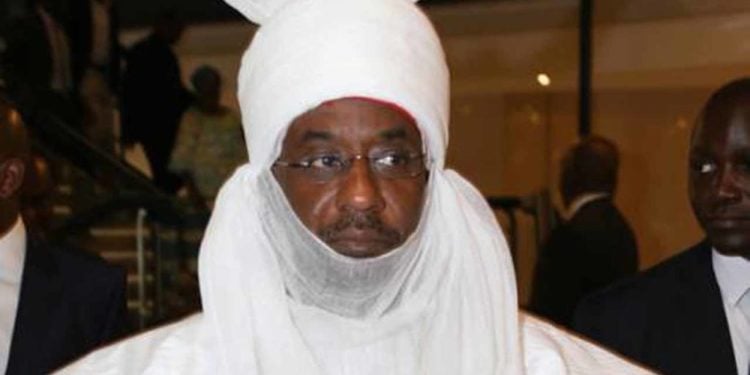The 14th Emir of Kano, Muhammad Sanusi II has said Islamic financing is helping to promote sustained, inclusive and sustainable economic growth, ending poverty, ending hunger, achieving food security, and gender equality in Nigeria and Africa at large. He said Islamic financing has helped to achieve seven out of the 17 Sustainable Development Goals (SDGs).
He made the remarks yesterday at the 6th Africa International Conference on Islamic Finance (AICIF) 2023. Titled “Towards a Just Transition,” the conference was organised as an opportunity to strengthen the community of practice on the promotion and development of Islamic finance in shaping the future of sustainable economic practices.
The International Labour Organisation has defined transition as “Greening the economy in a way that is as fair and inclusive as possible to everyone concerned, creating decent work opportunities and leaving no one behind.” The Just Transition framework aims at integrating social and climate justice as a concept that has special relevance to Africa and Islamic Finance.
Speakers at the summit highlighted opportunities in Islamic finance, including Islamic social finance instruments which they said are important to address challenges from limited investable opportunities.
The former governor of the Central Bank of Nigeria said the deployment of fintech to both conventional and Islamic finance, has the potential to integrate impact financing into both intermediation systems.
To avert catastrophe, there is a growing concern to radically switch to a sustainable, net-zero future, a situation Sanusi said needs to happen fast, but also fairly and inclusively.
If done right, the transition offers immense opportunities: a systems change in which all communities, workers, and countries are lifted.
He believes that integrating the achievement of the SDGs into Islamic finance practice and impact investing monitoring and measurement strategies “will also help realise the true intent of the Shari’ah for Islamic financial transactions. This integration will fit into the framework of a just transition to a net-zero future.”
The conference chairperson, Ummahani Ahmad Amin called for tailored action on social inclusion and poverty alleviation, Islamic finance aims to equitably redistribute assets within communities, steering fair wealth distribution.
The managing director of Metropolitan Skills Limited pointed to energy transition as a major issue to the attainment of the SDGs in Africa and said a poorly executed transition process can expose millions of lives to economic hardship resulting from loss of livelihoods, exclusion, disparity in the distribution of wealth, etc.
Thus, she said, “Further commitments will be required from African governments, international partners and other stakeholders to address the funding gap and design frameworks for a successful just transition in Africa, delivered for all, fairly and justly because solving our energy crisis is no easy task. Just transition requires the mobilization of climate funds to vulnerable African countries facing the harsh reality of climate change such as increasing mortality, human displacements, and migration, among other impacts.”
The managing partner of Metropolitan Law Firm commended the recently concluded sixth Sovereign Sukuk by the government of Nigeria as a case study of the successful use of Islamic finance to encourage private sector participation in infrastructure financing. “This can potentially address the increasing debt vulnerability of African countries,” she said.



